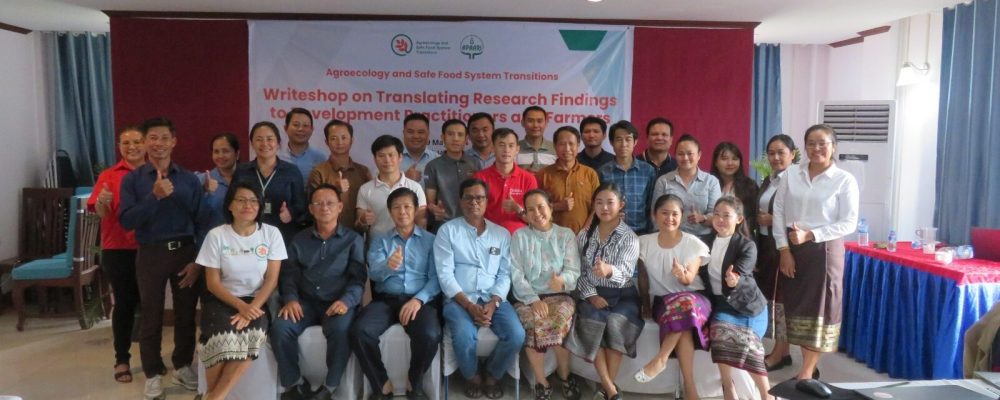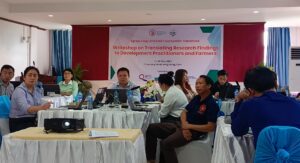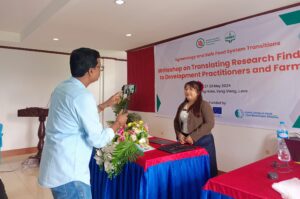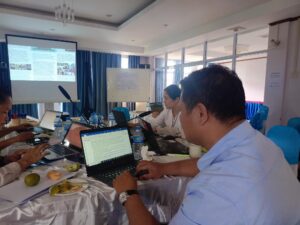Vangvieng, Laos: Ten members of The Agroecology Learning alliance in South East Asia (ALiSEA) network in Laos participated in a three-day writeshop on “Translating Research Findings to Development Practitioners and Farmers.” The event, held from May 27-29 in Vangvieng district, was organized by the Asia-Pacific Association of Agricultural Research Institutions (APAARI) as part of the Agroecology and Safefood System Transition project (ASSET).
The writeshop aimed to equip participants with the skills needed to effectively communicate complex research findings to a wider audience, including development practitioners and farmers. The training focused on three key areas:
- Sharpening writing skills: Participants honed their ability to communicate complex scientific knowledge in a clear, concise, and engaging manner for non-specialist audiences.
- Processing data: The writeshop explored different techniques for effectively processing data generated from expert knowledge and practical experience, ensuring its relevance and accessibility for the target audience.
- Documenting knowledge: Participants learned how to document research findings in a digestible and user-friendly format, making it readily accessible and applicable for development practitioners and farmers working in the field.
This writeshop has been incredibly valuable in helping me develop the skills I need to effectively communicate my research findings to a wider audience,” said Ms. Soulinda Souvanhnasan, an ALiSEA member from Participatory Development Knowledge Agency (PAKA). “I am confident that the knowledge and tools I gained will allow me to share my research in a way that is both informative and impactful for development practitioners and farmers.”
Another participant, Mr. Somsamay Vongthilath – Department of Planning and Cooperation (DOPC) and ASSET’s partner, shared, “The writeshop provided a much-needed platform for researchers to learn from each other and exchange best practices in translating complex research into practical and actionable information for the communities we serve.”
By enhancing their writing skills and understanding of knowledge communication, ALiSEA members in Laos will be better equipped to share research findings and best practices with development partners and farmers, ultimately contributing to the advancement of agroecology and sustainable food systems in the region.




